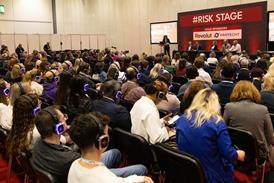A New York federal judge has been asked by Bloomberg LP to throw out of court a lawsuit brought by the governor of Arkansas and other writers, in a dispute that highlights the delicate evolution of AI regulation.

The plaintiffs say Bloomberg used their texts to train the advanced language model, BloombergGPT.
Making the request for dismissal last week, Bloomberg argued that its supposed ‘use’ of the authors’ copyrighted works for AI research falls within the firm’s fair use policy, as it was part of an exploration into the potential of generative AI.
Representatives for the authors and the financial information giant did not promptly comment on Monday’s court filing.
Last year, the Arkansas governor at the centre of the storm, Mike Huckabee, renowned Christian author Lysa TerKeurst, and several other authors initiated the lawsuit against Bloomberg, Meta, and Microsoft, alleging the firms used data pools filled with numerous pirated books to train text-based AI systems in human interaction.
The legal action is among numerous significant cases in which copyright owners challenge tech firms over purportedly inappropriate use of their content to train AI.
Huckabee, and TerKeurst, along with authors David Kinnaman, Tsh Oxenreider, and John Blase, informed the presiding judge that their works were employed without consent to educate BloombergGPT, an AI system designed for scrutinising financial data.
Bloomberg has hit back, stating the authors’ accusations are light on detail, and that they lack clarity about which titles were used for BloombergGPT.
Bloomberg informed the court it had employed the authors’ works under the ‘fair use’ doctrine, a provision in U.S. copyright law permitting certain unauthorised uses of copyrighted material. Fair use is anticipated to serve as a pivotal defence for tech firms in AI training copyright legal cases.
Bloomberg said:
“Simply put, a limited and private use of copyrighted works by a news reporting enterprise to teach a not-for-commercial-use AI model as part of an internal research project into the capabilities of generative AI, is not copyright infringement.”
Know the risks
Bloomberg’s stance throws light on the many areas of debate within copyright law in the era of AI.
These issues take centre stage next month at PrivSec & GRC Connect Chicago, where global experts explore the intersection of AI and regulatory compliance.
Not to be missed at PrivSec & GRC Connect Chicago:
AI Regulation: What Businesses Need to Know in 2024
- Date: Tuesday 16 April, 2024
- 15:00-15:45pm CST
Against the backdrop of rapid technological advancements and increasing public scrutiny, the panel will delve into crucial topics such as emerging regulatory frameworks, ethical considerations, data privacy concerns and the impact of AI on various industries.
Attendees will gain a comprehensive understanding of the regulatory landscape surrounding AI in 2024, enabling businesses to navigate compliance challenges effectively while harnessing the transformative potential of AI responsibly and ethically.
On the panel
- Matt Kelly, editor, Radical Compliance
- Sabrykrishnan Loganathan, Digital Gen-AI Ecommerce Executive Leader, Regal Rexnord
Discover more at PrivSec & GRC Connect Chicago
GRC, Data Protection, Security and Privacy professionals face ongoing challenges to help mitigate risk, comply with regulations, and help achieve their business objectives - they must…
- Continually adopt new technologies to improve efficiency and effectiveness.
- Build a culture of compliance and risk awareness throughout the organisation.
- Communicate effectively with stakeholders and keep them informed of GRC activities.
PrivSec & GRC Connect Chicago takes you to the edge of the debate, uniting the most influential GRC, Data Protection, Privacy and Security professionals, to present, debate, learn and exchange ideas.
This dynamic and content-rich experience takes place over April 16-17 at the Crowne Plaza Chicago West Loop.
Click here to register for free to PrivSec & GRC Connect Chicago















No comments yet